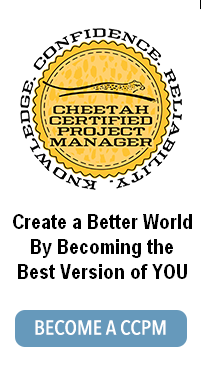High Performing Business – Quality – Fitness for Use
Friday, July 29th, 2016Michelle LaBrosse, CCPM, PMP, PMI-ACP, RYT
There are many reasons over the years I’ve spent more and more time in Alaska, but the main reason is just learning to live in a small remote Alaskan town helps me develop perspectve on what is really important. And it’s most certainly not the luxury items often deemed as “high quality.” It is obvious why there is plethora of rugged heavy duty 4×4 pick up trucks with thick rubber floor mats over racy sports cars in this town. Quality in Alaska means you can count on it to get through many winters.
I find myself confronted with the trade offs for one prospective solution after another for this project I’m working on with the Alaska Research Garden for year round food production. High quality in some parts of the world does not translate into high quality here if we cannot first aquire the item and have it shipped, and next easily and quickly maintain and repair the item. Even being the best Project Manager with extreme expediting capabilities only goes so far when one supplier after another wants to charge you more to ship their wares than the item is worth. I am quickly figuring out other ways to get things done in these cases. This does help stimulate amazingly creative approaches.
You also learn quickly the true power structure in remote locations. The all mighty dollar does not go that far when it is not how people measure the quality of their lives. Cultivating good relationships with local repair professionals and distributors who can get needed parts and supplies for much of the equipment required for daily living is mandatory for making life work in Alaska. In a small town you must build bridges, not burn them. In a world full of infinite choices, living at the end of the ferry line in Alaska, when you have any choices, it is only one or two choices – with the most basic functionality being the premium “high quality” feature.
I got reminded of all this recently with my fridge on the fritz. I had recently started making lunch for the small appliance repair guy when he was over fixing my well pump last month. This paid off when I was perplexed why my freezer would be ice cold but my fridge had become as warm as the compost bin. When the repair guy was over installing the part he ordered weeks before to insure the well stays working, he stayed longer as lunch was on and showed me how to keep the fridge working while he ordered the part to repair the unit. (The temporary fix requires using a blow dryer in the freezer!!)
Ease of doing these temporary fixes while waiting on the parts for the long term solution is now part of my definition for quality. It’s not like you can just run to town to get another fridge. The store that sells fridges in town is often sold out of them. So it becomes about being able to fix the basic necessities of life quickly and easily to keep it running or having a back up that works sufficiently well while waiting on the parts needed for the repair.
Having redundancy in mission critical equipment that is rugged with lower levels of skill required to maintain and repair defines high performance and quality in remote Alaska. Creating a high quality experience is about understanding how well the solution fits for the end user’s priority of needs. What creates quality is the fitness for use in the situation and it is fairly easy to measure here in Alaska – can you get it, will it work, and does it last?
While not everyone can get these experiences first hand of what it takes to live in Alaska, there are ways to learn how to create the most high quality existence for you. Finding the experiences that are the right fit require knowing yourself as well as we in Alaska quickly learn what is the right fit to survive here. Cheetah students learn how to make these same assessments on creating their unique high quality life that is the perfect fit by becoming a Cheetah Certified Project Manager.





